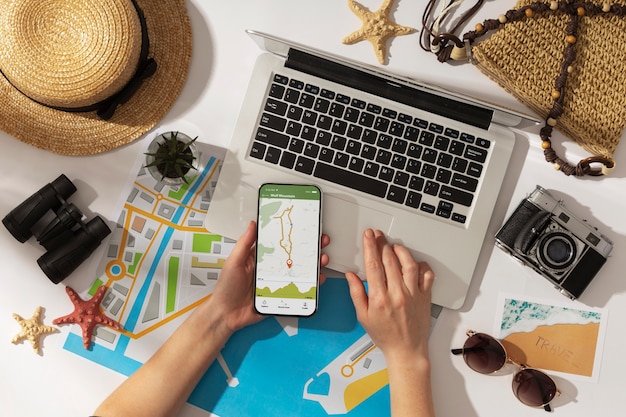Dave Dean, a tech guru from Too Many Adapters, is here to give us the lowdown on Virtual Private Networks (VPNs). In our tech-savvy world, we’re always connected, whether we’re traveling with our smartphones, tablets, or laptops. But this convenience comes with risks, like stolen credit card info, government spying, and hacked emails. We often forget about cybersecurity when planning our trips, focusing more on travel insurance for our health rather than our data.
Free Wi-Fi is a godsend for travelers, available everywhere from coffee shops to hostels and airport lounges. But as we casually browse and keep in touch with loved ones back home, we’re exposing ourselves to potential threats. Anyone on the same network can snatch your unencrypted data right out of the air. Usernames, passwords, credit card numbers, browser cookies, and other personal info are all up for grabs.
So, how do we protect ourselves? The answer is simple: use a VPN. A VPN creates a private network from a public internet connection, providing privacy and anonymity. It hides your online actions, making them virtually untraceable and keeping your private information safe from potential thieves.
VPNs were initially designed for businesses, but consumer versions quickly popped up as everyone realized the importance of online security. To understand how VPNs work, imagine the internet as a river. Your unencrypted data is like dye dropped into the river. Anyone on the bank can see the dye, its color, consistency, and where it ends up. But if you put a small pipe in the river and dump your dye into that, no one can see the dye or know anything about it until it comes out the other end. That’s what a VPN does.
Using a VPN is easy. You download and install a VPN app on your device, start it up after connecting to the internet, choose the server you want to use, and voila! Your data is encrypted and passing through the virtual network. VPNs are designed to protect all your internet traffic, including emails, music and video streaming, voice calls, and more.
Choosing a VPN service can be tricky with so many options out there. Here are some features to consider:
- Compatibility with your devices
- No restrictions or extra fees for simultaneous connections
- Works in as many countries as possible
- Acceptable speeds
- Auto-connect feature
- Has endpoints where you need them, and as many as possible
- Easy to install and use
Some recommended VPN services include ExpressVPN, NordVPN, and TunnelBear. They all offer free trials and cost between $3-10 USD per month. Annual plans can save you 50-75% off the regular price.
Once you’ve chosen a VPN service, remember to use it, especially when using Wi-Fi on your phone or tablet or any public/semi-public network. Use nearby locations for better speeds if possible. Be aware that there may be times when your connection is too slow to use a VPN. If your VPN disconnects, make sure it reconnects. And remember, VPNs provide security, not anonymity. Most VPN companies log the sites and services you connect to, along with your account and credit card information. So, don’t do anything stupid.
VPNs may not be the most exciting part of your travels, but they’re a cheap, easy way to protect yourself online. They’ve been an indispensable part of my digital travel toolkit for years, and I wouldn’t travel without one. I strongly suggest you don’t either!
Dave Dean runs Too Many Adapters, a site devoted to technology for travelers. He’s been a geek as long as he can remember and worked in IT for fifteen years. Now, he writes about travel and tech from anywhere with half-decent internet and a great view. You can also find him talking about the life of a long-term traveler at What’s Dave Doing?
